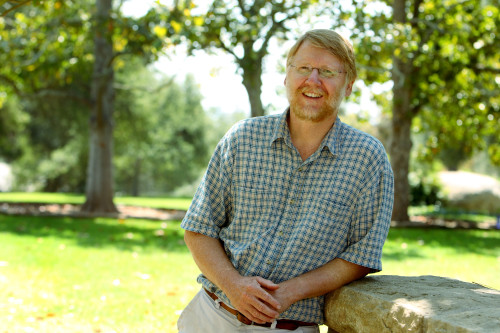Creative Residency: Paul Willis

by Paul Willis
Last fall I was lucky enough to serve as an artist-in-residence for North Cascades National Park. They gave me a room in the ranger cabin at the entrance to the Newhalem Campground, and most days I was out hiking around, fishing for poems. Most of them swam into being on the trail, not at my desk, a sort of literary version of plein air painting. As Rebecca Solnit has said, the mind works best at three miles an hour.
As an English professor for the last thirty years in New York and California, I have missed the Northwest. I grew up in Corvallis, Oregon, across the Willamette Valley from the shining peaks of the Cascades. My brother and I began to explore them in high school, and the mountains planted something inside us that has remained. He now lives near Ashland, Oregon, and was one of the prime movers for the designation of the Cascade-Siskiyou National Monument. While in graduate school at Washington State University, I did my part by helping to gain protection for the Salmo-Priest Wilderness, the last home of the mountain caribou in the lower forty-eight.
But unlike my brother, I did not find pleasure in the dogfights of politicking for wilderness. Writing about it has felt much better to me, first in a series of eco-fantasy novels now published as The Alpine Tales, and more recently in the occasional essay and the more frequent poem. So my brother and I have slipped into a symbiotic relationship: he does the dirty work of fighting for wilderness preservation, and I do the easy work of actually enjoying the wilderness. I would like to think, however, that the things I write are some sort of encouragement to him, so that’s my side of the symbiosis. Our mutual friend David James Duncan, the novelist, complained to me that he feels torn between his activist side, wanting to save rivers, and his contemplative side, wanting to write novels. What you need, I said, is a brother who saves the rivers for you.
But back to last fall in Newhalem. The Park Service did want me to earn my keep by offering a couple of writing workshops for visitors. One I led at the Newhalem Visitor Center, and another at the Environmental Learning Center. The latter workshop was part of an adult weekend organized by Katie Roloson and Chris Kiser of the North Cascades Institute. These two young women were extraordinarily adept, I thought, at gently leading us into situations of discovery. No information dumps. Just tact, patience, and the right word at the right time. I found that I liked these people.
So when the opportunity came to return to the North Cascades this spring as a creative resident here at the Institute, I was very happy to do so. It is now the end of May, and I have been here for a month. The berries of fall have been replaced by the flowers of spring, all begging to be written about. I have gone on a couple of five-day saunters, one on the East Bank Trail to Desolation Peak, and one down Bridge Creek to Stehekin. On the Bridge Creek Trail I met a total of two people and five bears. A pretty good ratio, actually.
Here at the ELC I have enjoyed eating meals, washing dishes, and swapping stories with the staff. Such youth! Such energy! Such devotion! Their lively presence sweetens my days. We all did a hike-ku together one afternoon, writing down a few things in response to our surroundings, and a few days later I gave a talk to the grad students on John Muir’s theology of glaciers, complemented the following week by a very substantive lecture given by Jon Riedel on glaciers of the North Cascades. In another couple of days I will give a farewell reading of some of my work-in-progress at an afternoon staff meeting. And already I dread my departure. There might be a better sabbatical in the world, but I cannot imagine one.
As a sample of that work-in-progress, I’ll leave you with the draft of a poem I happened to catch two weeks ago:
Pyramid Creek
Clearest stream, you wander here
from gravel bed to gravel bed,
napping in pools along the way.
You lave the roots of dusky cedars,
leaning with age, and reassure them
they have many years to leave.
Thick green moss describes your banks,
saplings of hemlock, little hands
of soft vine maple raised in air.
They want to ask if there is any other
place you’d rather be, but off you go,
down to the river, down to the sea.
—Ross Lake National Recreation Area
Paul J. Willis is a professor of English at Westmont College and a former poet laureate of Santa Barbara, California. His most recent collection is Say This Prayer into the Past (Cascade Books, 2013). Learn more at pauljwillis.com.


Lovely inspiring article and poetry. Thanks for writing about your experience and this beautiful place!